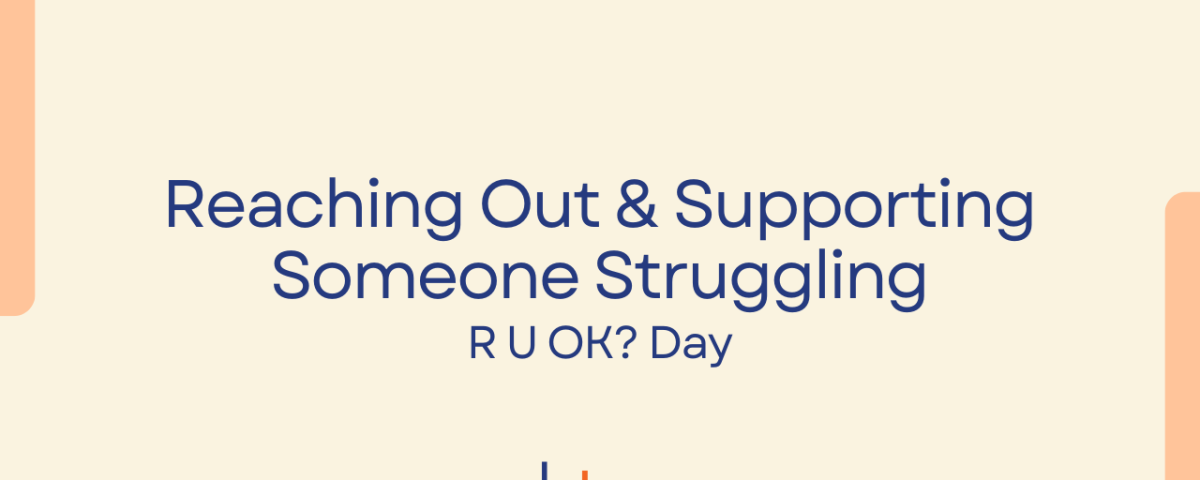How to Ask Someone If They’re OK: A Psychologist’s Guide to Starting the Conversation
How to Ask “Are You OK?” and Support Someone Who’s Struggling
A psychology-informed guide to meaningful conversations
Checking in with someone can feel like a small gesture — but it can have a profound impact. Asking “Are you OK?” is more than just a question; it shows care, helps people feel seen, and can even be a catalyst for seeking support.
Mental health conversations can feel daunting. Many people worry about saying the wrong thing or not knowing how to help. But you don’t have to be a therapist to make a difference — you just need to show up with empathy, curiosity and a willingness to listen.
In this blog, we’ll explore how to ask someone if they’re OK, respond supportively, and encourage further help when needed.
Why Asking Matters
People experiencing emotional or psychological distress may feel isolated, misunderstood, or unsure how to speak up. A compassionate check-in can:
- Create space for someone to open up
- Reduce feelings of loneliness
- Encourage early intervention
- Show that someone cares about their wellbeing
Research supports that connection, early support and empathy can make a significant difference in someone’s mental health journey.
Before You Ask: Things to Consider
- Choose the right moment — Find a private, calm space where the person won’t feel rushed.
- Be mentally present — Ensure you’re in a headspace where you can actively listen.
- Be prepared for any response — Someone may not be ready to talk, or they may open up more than expected. Stay open either way.
How to Ask — With Care and Intention
1. Approach Gently and Authentically
Try saying:
“I’ve noticed you don’t seem yourself lately — are you OK?”
“I just wanted to check in. How have you been feeling recently?”
A warm, non-judgemental tone encourages honest sharing.
2. Listen — Really Listen
Your role is not to fix or advise, but to hold space.
Use active listening strategies:
- Maintain gentle eye contact
- Allow pauses or silence
- Offer verbal affirmations (“That sounds difficult”, “I’m here for you”)
- Reflect back what you hear (“It sounds like things have felt really overwhelming”)
Avoid shifting the focus to yourself — keep the conversation centred on them.
3. Avoid Judgement or Minimising
Statements like “Others have it worse” or “You’ll be fine” can feel dismissive. Instead, try:
“That sounds really hard.”
“I can understand why you’re feeling that way.”
If They Say They’re Not OK
First, thank them for trusting you.
Then gently ask how you can support them:
“I really appreciate you telling me. What would help right now?”
“Would you like to talk more about what’s been happening?”
You don’t need to have all the answers — your presence matters.
Encouraging Professional Support
If someone is struggling with persistent low mood, anxiety, or hopelessness, encouraging them to speak with a mental health professional can be an important step.
“It sounds like you’ve been carrying a lot — have you thought about speaking to someone like a psychologist or GP?”
“Would you like help finding someone to talk to?”
Offer support in booking an appointment or sourcing resources if it feels appropriate.
If They Say They’re Fine — But You’re Concerned
Respect their response, but leave the door open.
“That’s completely fine — I’m here if you ever want to talk.”
Continue checking in over time. Support isn’t just a single conversation — it’s ongoing connection.
Look After Yourself, Too
Being there for someone can be emotionally challenging. Remember to:
- Set healthy boundaries
- Debrief with someone you trust or use journaling to process
- Prioritise your own wellbeing
You can’t pour from an empty cup.
Every Conversation Counts
Mental health support doesn’t always begin in a therapy room — often, it begins with a quiet chat, a caring message, or a moment of listening.
You don’t need to be an expert to make a difference. You just need to ask, listen and care.
When You’re Ready, Professional Help is Here
If you or someone you care about is finding things difficult, support is available.
At CBT Professionals, our team of registered psychologists offers evidence-based, compassionate therapy to help individuals feel heard, supported, and empowered.
We offer:
- In-person appointments across our Gold Coast clinics
- Telehealth Australia-wide
Book an appointment:
Helensvale: (07) 5551 0251
Mount Gravatt: (07) 3102 1366
Nerang: (07) 5668 3490
You don’t have to have all the answers — you just have to start the conversation. And when you’re ready, we’re here to help.
THREE CONVENIENT LOCATIONS
MOUNT GRAVATT
Mt Gravatt Medical PrecinctSE 105, 1808 Logan Rd
Upper Mount Gravatt QLD 4122


